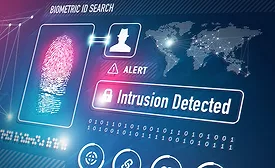Security & Business Resilience
Improving situational awareness via video content analytics is the key to business safety and compliance for COVID-19
Driving business resilience and risk management
October 15, 2020
Sign-up to receive top management & result-driven techniques in the industry.
Join over 20,000+ industry leaders who receive our premium content.
SIGN UP TODAY!Copyright ©2026. All Rights Reserved BNP Media.
Design, CMS, Hosting & Web Development :: ePublishing














